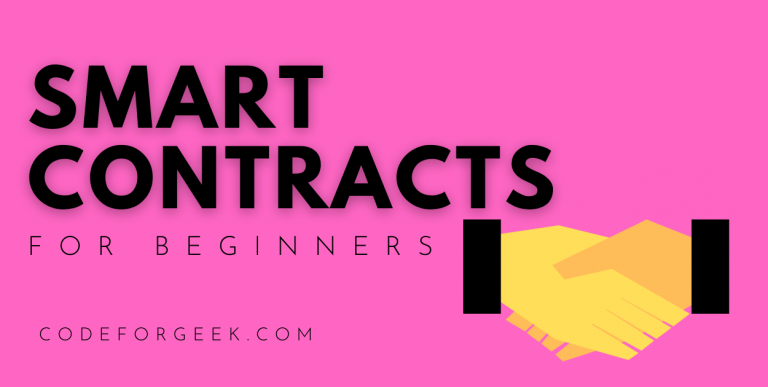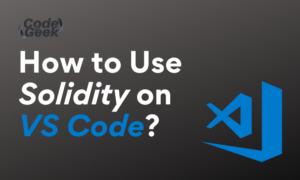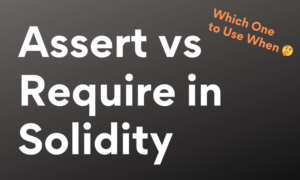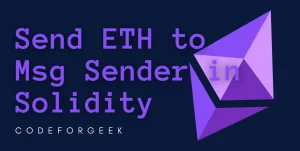In today’s blog, I am introducing you all to something very that is very popular and important, known as smart contracts.
If you are a blockchain professional, there is no chance you are not knowing what smart contracts are. This blog is for people who don’t know what are smart contracts, aspirants looking forward to starting a career in Blockchain, or simply cryptocurrency enthusiasts.
So, let us get started with understanding Smart Contracts!
Explaining Smart Contracts: It Couldn’t Get any Easier
A smart contract is nothing but a program or application stored on a blockchain. They run when predetermined conditions are met and are commonly used to automate the execution of an agreement.
This allows all participants to be immediately certain of the outcome, without the need for any intermediary’s involvement or loss of time. Moreover, smart contracts help in automating a workflow, to trigger the next actions when conditions are met.
As mentioned earlier, a smart contract is an application, unlike the ones stored on a single server. They are decentralized applications or dApps that are stored on a shared ledger across thousands of computers around the world. Their main function is to execute business logic as a response to events or conditions.
This execution typically results when there’s an exchange of money, exposing/unlocking information or content protected via digital rights management, delivery of services, or other different types of data manipulation.
They are developed, distributed, managed, and updated based on a variety of architectures. They could be stored on a blockchain or any other shared ledger technology and can be integrated into various payment mechanisms and online exchanges including Bitcoin or other cryptocurrencies.
Despite having the name, it is important to note, a smart contract is not a legally bound contract. However, it is advisable to always undertake legal measures and link these executions to legally bound agreements between all parties.
How are Smart Contracts Created and How do they Work?
A smart contract is a decentralized app encrypting a business logic that runs on dedicated virtual machines (VM) and is stored on a shared ledger or a blockchain.
Then, write the code to develop the logic of the smart contract on a smart contract-writing platform. The code is then tested and made sure if it’s good to go.
Once the dApp is done developing, it is then transferred to another team for security analysis. This stage could be taken care of by an internal expert or a third-party firm that specializes in smart contract security reviews. Once the smart contract or dApp is approved, it is then deployed on an existing blockchain or other distributed/shared ledger structure.
At this point when the smart contract is deployed and available for users, it starts to listen to event updates from what is called an “oracle”. An oracle is a streaming source of data that is cryptographically made secure.
Finally, when it actually receives the right mix of events and successfully passes the predetermined conditions set by the developers, the smart contract is executed from one or more oracles.
Advantages of Smart Contracts
There are numerous benefits a smart contract provides a business with. Here’s to list a few.
Cost-efficient – They enable business process automation that extends organizational limits. This helps eliminate operational expenses and save resources, which includes process monitoring experts.
Speed up Business Processes – Smart contracts help improve the business processes that run across multiple enterprises.
Autonomous/Automatic – Smart contracts are executed automatically by the network. This diminishes the need for a body to manually manage transactions, helping remove potential human errors and guaranteeing accurate executions.
Reliable – Smart contracts maintain a verifiable record of all complex transactions with help of blockchain ledgers and other shared ledgers. Moreover, they cannot be changed after the fact.
Smart Contracts in the Past and Smart Contracts Today
Smart contracts were first conceptualized by Nick Szabo back in 1994. Szabo is a legal scholar and cryptographer and popularly known for laying the foundation for digital currency and the like. Back then, smart contracts hardly gained a buzz or even any interest. It can be justified because there were no digital platforms or distributed or shared ledger technologies at that time that could support Nick’s idea. It is only today that his ideas are coming into existence, thanks to the innovations in digital.
Many platforms have sprung up today, allowing smart contracts, including Ethereum, Hyperledger, Tezos, and Corda.
With the proliferating adoption of Bitcoin and the backing of blockchain technologies, smart contracts today are fast growing in popularity across the globe.
Read More: What is Bitcoin and How Does it Work?
Conclusion
If you are a blockchain professional, there is no chance you are not knowing what smart contracts are. This blog is for people who don’t know what are smart contracts, aspirants looking forward to starting a career in Blockchain, or simply cryptocurrency enthusiasts.
Noteworthy References
Smart Contract Definition – Search Compliance





